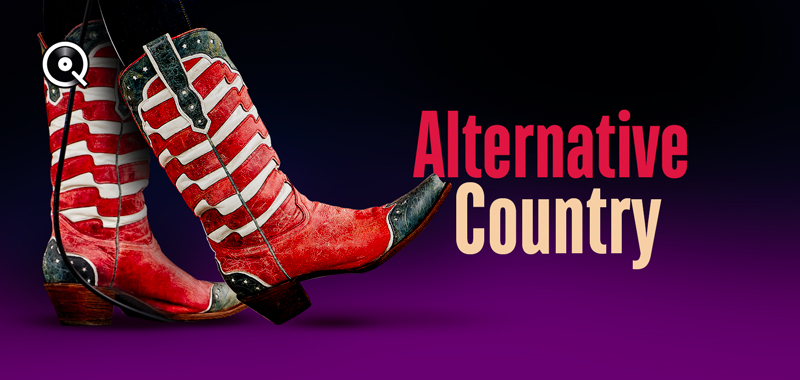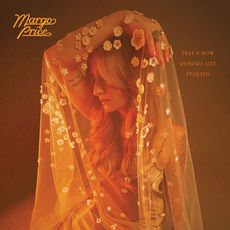In the beginning was Kitty Wells... This contemporary of Hank Williams, a great expert in the honkytonk style, marked women's first great step forward in Nashville. Born Ellen Muriel Deason in Music City in 1919, she was the first singer to reach a pole position in the charts, in 1952, with It Wasn't God Who Made Honky Tonk Angels , a legendary denunciation of then-pervasive machismo. She remained at the top of the charts for a decade, making her one of the top ten biggest sellers in the genre alongside Dolly Parton, Loretta Lynn, Reba McEntire, Tammy Wynette and Tanya Tucker. And to get there, Kitty Wells had to struggle for a simple reason: she was a woman. In 1940s America, she sang with her sisters, the Deason Sisters, then with her husband Johnnie Wright and sister Louise Wright. This trio, Johnnie Right & the Harmony Girls, became a quartet, the Tennessee Hillbillies, and then the Tennessee Mountain Boys. Wright and Wells also sang as a duet. But RCA Records was not yet ready to promote a solo woman. It got to the point that the label thanked Kitty when she was planning to give up music altogether. Two years later, Decca convinced her to record It Wasn't God Who Made Honky Tonk Angels. "It was an answer to Hank Thompson's pieceThe Wild Side of Life, which made fun of women for causing adultery. That's right, it was always our fault, women's fault!" The message was so controversial that radio stations would boycott the song. But not the public: 800,000 copies were sold during the summer of 1952! Sales of her singles in the years that followed kept things moving, and she was finally able to release Kitty Wells' Country Hit Parade, in 1956, the first country album released by a woman. Decca remained faithful to her until 1973. Without Kitty Wells, there would be no Loretta Lynn, no Dolly Parton! Although the 1960s marked the beginning of the end, she managed to score a few hits in the charts. Her aura as a queen remained intact despite the arrival of the younger generation and the advent of a much more rock-oriented sound. So much so that in 1974, the Capricorn label had her record a bluesy-sounding album, Forever Young (for which she covered Dylan's anthem of the same name), where she was backed up by the likes of Chuck Leavell of the Allman Brothers Band and Toy Caldwell of the Marshall Tucker Band! She was inducted into the Country Music Hall of Fame in 1976. Kitty Wells was then the second woman to be admitted, after Patsy Cline three years earlier.
With Patsy Cline, Country moves from good old honkytonk to theatre, with its thick red velvet curtains. It was a magic trick performed by producer Owen Bradley, who paired the Virginia-born girl up with his famous Nashville Sound, the sound based on a preponderance of vocals, the addition of a string section, and backing vocals, which transformed Country music into an industry. Patsy Cline was the first real star of her kind. She was a sort of female Elvis (the King's vocal group, The Jordanaires, accompanied her on several occasions). Her ballads had the intonations of great melodies, between dreams and reality, melancholic outpourings and tears of bitterness... This girl from the South would become a girl for all America. Even more so when she died on March 5, 1963 in a plane crash, at only 30 years old. It was the end of a fairy tale that began in a working-class family in the 30s. Abused by her blacksmith father, forced to work after school, Virginia Patterson Hensley who was not yet known as Patsy Cline fell victim to a throat infection at 13. It was an accident that forever transformed her voice and gave her that deep tone, that rich timbre, that was so characteristic of her. This transformation prompted her to sing first in the Baptist church with her mother and then on local radio stations. At 15, she auditioned at the Grand Ole Opry, Nashville's country Mecca. She spent the 50s climbing the ranks, recording for Four Star and then Decca. She became a popular voice of the genre, also trying her hand at gospel, rockabilly and lounge music. Everything really changed the following decade, particularly from 1961 with the hit I Fall to Pieces, which reached an audience beyond the ranks of pure Country fans. The same year, Patsy nearly died in a car accident. Unaware that the grim reaper would catch up with her three years later, she sped to the heights of glory. This fame was notably thanks to the sublime ballad Crazy which Willie Nelson wrote, or the sublime Sweet Dreams which would lend its title to the biopic that Karel Reisz directed with Jessica Lange in 1985.
Create a free account to keep reading





















































